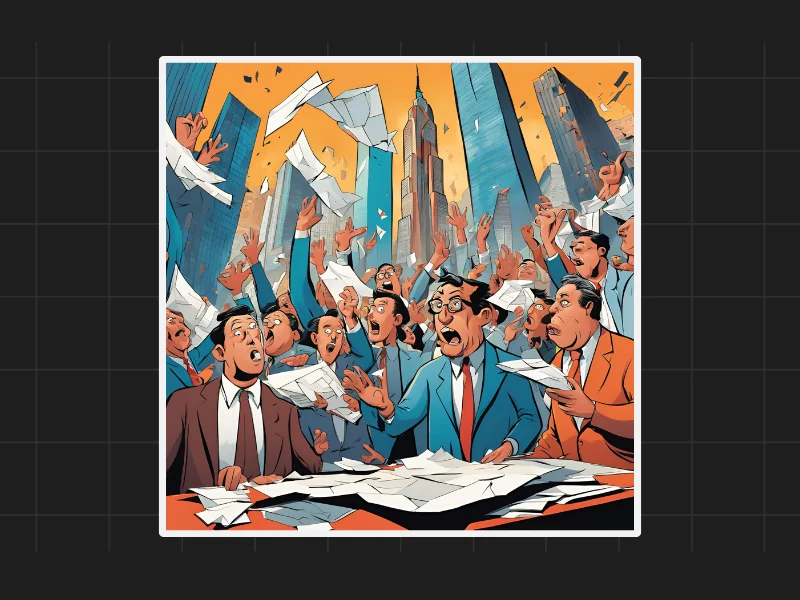The Performance of Big Hedge Funds vs. Market Indexes
When comparing the performance of large hedge funds to market indexes like the S&P 500, interesting trends emerge. One example is the Bridgewater hedge fund, managed by Ray Dalio. Over the last decade, Bridgewater’s annual growth rate was just 4.3%, compared to the S&P 500’s 18.4%. This shows a significant gap in returns. While this might seem like an unusual case, it actually reflects a broader issue that many large fund managers face.

The Challenges of Managing Large Funds
One of the main reasons big hedge funds struggle to outperform the market is their sheer size. When a fund manages billions of dollars, it becomes much harder to move money in and out of stocks without disrupting the market. For instance, if a large fund wants to invest or withdraw $1 billion from a stock, it can affect the stock price and the market itself. This makes it difficult for the fund manager to act quickly or take advantage of short-term opportunities.
Why Large Fund Managers Plateau Over Time
As funds grow, managers have fewer options to efficiently manage their portfolios. When a fund grows too large, investing heavily in just a few stocks is no longer feasible. Instead, the fund must diversify across more stocks to avoid concentration risks. For example, if a fund initially invested in 30 stocks, they might now need to spread their capital across 200 stocks. This can dilute the fund’s performance, as they are forced to invest in a broader range of companies, some of which may not perform as well.
Big Size, Less Flexibility
Another problem large funds face is their inability to move out of stocks quickly. When market conditions change, smaller funds can react fast by buying or selling shares without causing a stir. However, larger funds have a tougher time doing this because their trades are often too big to go unnoticed. As a result, they sometimes have to take a more passive, long-term approach, which limits their ability to take advantage of short-term market movements.
The Human Factor and Fund Performance
Even with some of the smartest minds working for these big hedge funds, outperforming the market remains challenging. Big funds often hire top talents from prestigious institutions like Harvard and MIT. Despite this, Bridgewater’s performance over the past decade highlights that even the best experts face challenges when dealing with large amounts of capital. Their strategies, while carefully planned, cannot always overcome the hurdles of managing such a massive fund.
Understanding Fund Size as a Key Metric
When choosing a fund to invest in, size can be a crucial factor. Larger funds tend to have more difficulties moving funds and may struggle to generate high returns compared to smaller, more nimble funds. While large fund managers like Ray Dalio are highly respected, their funds’ performance may plateau over time simply due to their size. For investors, it’s important to keep this in mind when selecting a fund, as smaller funds often have more flexibility and potential for growth.
Disclaimers and disclosures : https://tinyurl.com/2763eyaz
If you have any questions, please write to support@weekendinvesting.com













